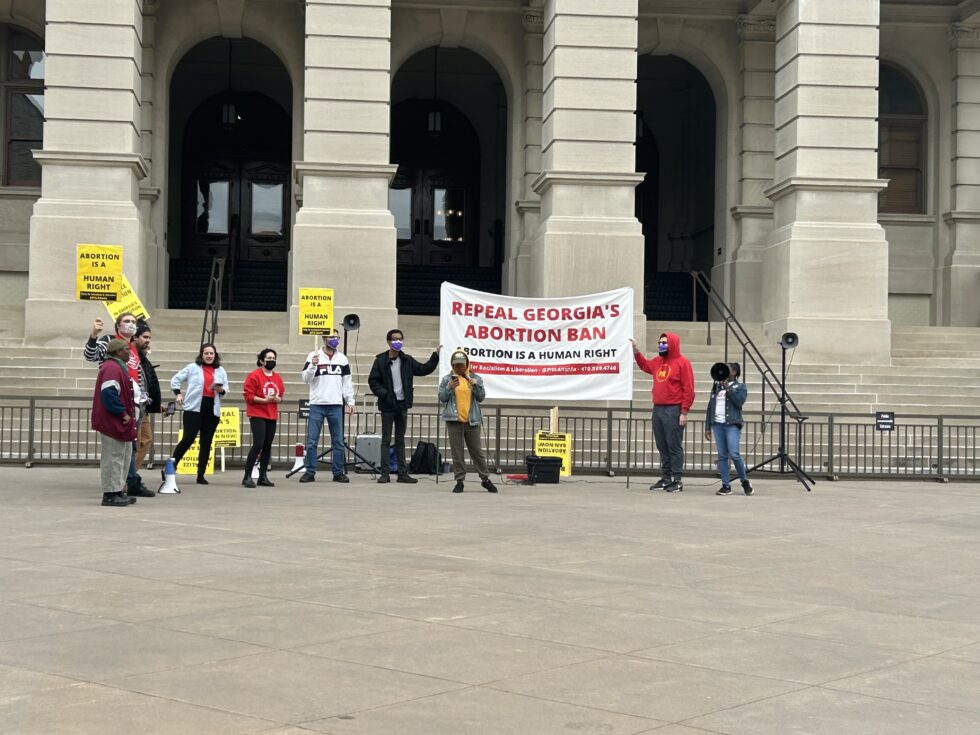
ATLANTA – The Georgia Supreme Court ruled Tuesday that a state law prohibiting most abortions after six weeks of pregnancy may remain in effect.
The General Assembly’s Republican majorities passed the Living Infants Fairness and Equality (LIFE) Act in 2019 banning abortions after a fetal heartbeat can be detected, with exceptions for rape, incest, and medical emergencies.
But federal courts blocked the law from taking effect until late last year, when the state Supreme Court reimposed the ban pending the outcome of a lawsuit challenging the law filed by the reproductive rights group Sistersong.
The plaintiffs, other pro-choice groups, and legislative Democrats argued the Georgia law should be declared unconstitutional because when it was enacted in 2019, the 1973 U.S. Supreme Court decision in the Roe v. Wade case protecting women’s right to abortion remained the law of the land.
Fulton County Superior Court Judge Robert McBurney agreed and ruled in the plaintiffs’ favor last November, only to be quickly overturned when the state Supreme Court temporary reimposed the ban.
On Tuesday, a majority of the justices sided with the state’s argument that the abortion ban should stay in effect because of the U.S. Supreme Court’s ruling last year in the Dobbs case that overturned Roe v. Wade and removed the constitutional right to abortion.
“When the United States Supreme Court overrules its own precedent interpreting the United States Constitution, we are then obligated to apply the court’s new interpretation of the constitution’s meaning on matters of federal constitutional law,” Justice Verda M. Colvin, wrote in the court’s majority opinion.
In a dissenting opinion, Justice John J. Ellington agreed with the lower-court ruling that the Georgia law should not be allowed to stay in effect because last year’s U.S. Supreme Court decision on abortion was not the law of the land when Georgia lawmakers passed the LIFE Act four years ago.
An act “cannot spring to life because of any subsequent change in the law,” he wrote.
Ellington went on to write that the six-week abortion ban should be allowed only if the General Assembly revisits the issue and re-enacts the law.
Republican Gov. Brian Kemp, who signed the LIFE Act into law in 2019, applauded Tuesday’s ruling.
“Today’s victory represents one more step towards ending this litigation and ensuring the lives of Georgians at all ages are protected,” Kemp said.
Sistersong Executive Director Monica Simpson called the decision “devastating.”
“This abortion ban has forced Georgians to travel across state lines at great expense or continue the life-altering consequences of pregnancy and childbirth against their wills,” she said.
U.S. Rep. Nikema Williams, D-Atlanta, who also serves as chairperson of the Georgia Democratic Party, said Democrats will make Tuesday’s ruling an issue in next year’s election campaigns.
“Come 2024, we’ll fight to keep anti-abortion extremists out of both the White House and the statehouse and work to codify protections for reproductive freedom into federal law,” she said. “Today’s ruling is a blow to Georgians and to reproductive freedom, but the fight continues.”